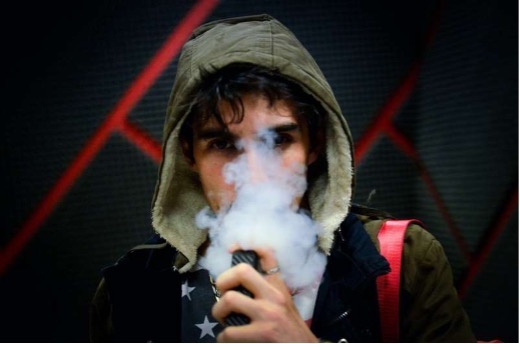New national study finds adolescent vapers much likelier to use cannabis and binge drink
May 19, 2023
Source: drugdu
 248
248

A new study of more than 50,000 US adolescents across the country indicates that vaping nicotine is strongly linked with an increased likelihood of high levels use of binge drinking and cannabis usage.
The findings, published today in Substance Use and Misuse, will add to growing public health concerns about the increased popularity of electronic cigarette (or "vaping") use among young people.
"While the overall health risks of vaping are lower than smoking, electronic cigarettes are still harmful to adolescents and warrant ongoing surveillance—especially as the long-term impacts remain unknown," says lead author Noah Kreski from the Columbia University Mailman School of Public Health.
"Our results indicate that vaping is not an isolated behavior, but rather strongly tied to other substance use that can harm adolescents and make quitting nicotine more difficult. Recognizing the strong overlap between various forms of substance use, effective intervention efforts should work to simultaneously address vaping, drinking and cannabis use to encourage the health and well-being of young people."
The researchers used the Monitoring the Future survey—conducted by the National Institute on Drug Abuse (NIDA)—to track trends in the use of cigarettes, alcohol, cannabis, vaping of both nicotine and cannabis, and other substances for children in school grades 8 (13-14 years old), 10 (15-16 years old) and 12 (17–18 years old).
The team examined data from 51,872 adolescents who took part in the survey between 2017 and 2019. They assessed the links between past 30-day nicotine use (non-, smoking-only, vaping-only, and any smoking plus vaping) with past 30-day cannabis use—making adjustments to account for certain demographic factors, such as age, sex, race, parental education and urbanicity of the participants.
Looking at nicotine use and cannabis use (in any form, including vaping), they found that compared to those who did not use nicotine at all, adolescents who:
• smoked were 8.03 times more likely to use cannabis.
• vaped were 20.31 times more likely to use cannabis.
• both smoked and vaped were 40.1 times more likely to use cannabis.
The researchers also found a link between past 30-day nicotine use and two-week binge drinking, even after adjustment. The association between smoking and vaping and binge drinking increased in magnitude at greater levels of binge drinking. For instance, compared to those who did not use nicotine at all, adolescents who both smoked and vaped were:
• 5.6 times more likely to have participated in binge drinking on one occasion.
• 21.60 times more likely to participated in binge drinking on three to five occasions.
• 36.53 times more likely to have participated in binge drinking on ten occasions or more.
"The links between vaping-only, or both smoking and vaping, and cannabis use and binge drinking outcomes in adolescents are particularly striking—especially at the highest levels of binge drinking. While the causal direction of these associations is unclear, the size of the effect is concerning given the harms these substances pose to adolescents," adds Kreski, who is a data analyst at Columbia.
"Given the strong links between nicotine use and both cannabis use and binge drinking, there is a need for sustained interventions, advertising and promotion restrictions, and national public education efforts to reduce vaping in adolescents—efforts that acknowledge co-occurring substance use," Kreski notes.
The authors highlight certain limitations of this study relating to the survey. These include that the data was collected from students during the school day, and excluded those who were absent. Nicotine vaping and smoking were also self-reported by participants, which may be vulnerable to measurement and recall bias.
Provided by Taylor & Francis
By editorRead more on
- The first subject has been dosed in the Phase I clinical trial of Yuandong Bio’s EP-0210 monoclonal antibody injection. February 10, 2026
- Clinical trial of recombinant herpes zoster ZFA01 adjuvant vaccine (CHO cells) approved February 10, 2026
- Heyu Pharmaceuticals’ FGFR4 inhibitor ipagoglottinib has received Fast Track designation from the FDA for the treatment of advanced HCC patients with FGF19 overexpression who have been treated with ICIs and mTKIs. February 10, 2026
- Sanofi’s “Rilzabrutinib” has been recognized as a Breakthrough Therapy in the United States and an Orphan Drug in Japan, and has applied for marketing approval in China. February 10, 2026
- Domestically developed blockbuster ADC approved for new indication February 10, 2026
your submission has already been received.
OK
Subscribe
Please enter a valid Email address!
Submit
The most relevant industry news & insight will be sent to you every two weeks.



